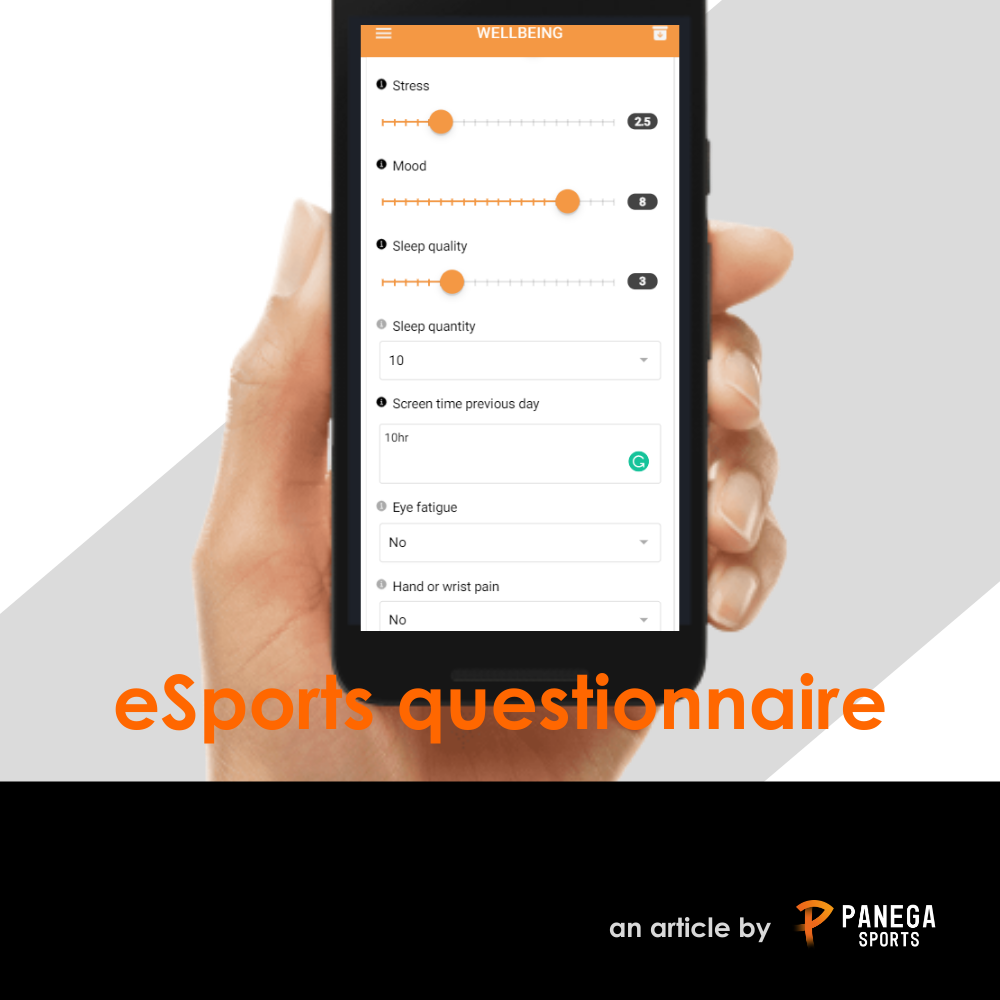Article: Optimizing health and performance within Esports
16/12/2020
eSports is a relative new phenomenon were currently 90% of the American children are playing video games recreationally but only a few will make it to the elite competitive level.
These professional eSports athletes are spending between 5.5 and 10hours daily behind a screen.
Although these eSports athletes are performing their sport on the same elite level as our traditional athletes, we often see a lack of resources to monitor the athletes in the same professional way.
That brings us to the question: how can we longitudinally monitor eSports athletes in a low-cos/low maintenance way with the limited resources the eSports framework still often has.
First of all, we need to know what we already known by the research that is done in the past.
The scientific paper from Ahmed K. Emara, Mitchell K. NG et al. gives us already a good holistic insight on how to monitor these athletes.
Ahmed K. Emara, Mitchell K. NG et al discuss the importance of environmental factors like sleep, nutrition, hydration, psychosocial factors and how this influence the mental and physical health of the athlete.
For example, they found that eSports athletes often consume a lot of high glucose and caffeinated beverages to enhance performance. Such high caffeine intake has an influence on the sleep quality of the athlete which will further result in a fatigued state, depressed mood, and higher stress levels.
These will then further result in a lack of performance in the long run.
But how can we prevent this negative cycle from happening with the limited resources the framework of an eSports athlete often have?
Based on this scientific paper of Ahmed K. Emara, Mitchell K. NG et al., a daily questionnaire is created which can be filled in within 1-minute by the athlete to track the early symptoms of performance decrescent and overall healthcare issues.
In this questionnaire we ask for:
- general fatigue
- stress
- mood
- sleep quality
- sleep quantity
- screen time
- eye fatigue
- back/neck pain
- hand/wrist pain
- subjective overall shape
In an ideal world we would be able to track our athletes 24/7 with objective tools but because they are rather expensive and time consuming to analyse, a subjective data set is both low-cost, low-maintenance and easy to understand.
Correlations between subjective wellbeing and objective overall performance can be tracked with just 10 simple questions.
The reliability of this tool is of course highly dependable on the answers given by the athlete.
Another remark to point out is that subjective values always need to be interpret in a longitudinal way.
For example, athlete A will give a good night of sleep a 9 out of 10 while athlete B gives the same quality of sleep a 7 out of 10 because he/she thinks it can be better.
If a few weeks later athlete A gives his/her night of sleep a 6 out of 10 and athlete B gives the same score, this of course has a different meaning although it is the same score.
That is why within our platform we work with Z-scores which always take into account the score of the previous day, the day before yesterday and the average score for this athlete.
In concreto, even with just a few number of resources you can already get a holistic view on your players by just asking the right questions on a regular basis.
Research will guide us in the upcoming years with new insights that we will follow up as well to deliver the best practice within your organization.
This article is part of a series and aims to translate scientific literature into the field of work in which we, as a company, can support to make this translation possible.

